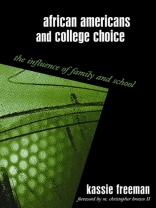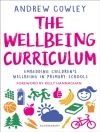Assesses the influence of family and school on African American students’ college decision-making processes.
Acknowledging the disparity between the number of African American high school students who aspire toward higher education and the number who actually attend, this book uncovers factors that influence African American students’ decisions regarding college. Kassie Freeman brings new insights to the current body of research on African Americans and higher education by examining the impact that family, school, community, and home have in the decision-making process. She explores specific factors that contribute to a student’s predisposition toward higher education, including gender, economics, and high school curriculum, and seeks to bridge the gap in understanding why aspiration does not immediately translate into participation. Educators and policy makers interested in increasing African American students’ participation in higher education will benefit from the exploration of this paradox.
Table of Content
List of Illustrations
Foreword by M. Christopher Brown II
Preface
Acknowledgments
Introduction: The Puzzle of College Aspirations versus Attendance
Part One: Familial and Individual Influences
1. The Influence of Family
2. Turning Point: When Decisions Are Made
3. Gender Issues: The College Choice Process of African American Females and Males
4. Economic Expectation and College Choice
Part Two: School Influences
5. Curriculum Issues and Choice
6. Channeling Long and Wrong
7. Decision Making by High School Type: High Schools Successful in Channeling
8. Selection of Higher Education Institution Type: HBCU or PWI?
Part Three: Putting the Puzzle Together
9. Students Offer Solutions
10. The Case for Expanding the College Choice Model
Appendix: Design of the Study
References
Index
About the author
Kassie Freeman is Dean and Professor of Education at Dillard University. She is the editor of African American Culture and Heritage in Higher Education Research and Practice.












